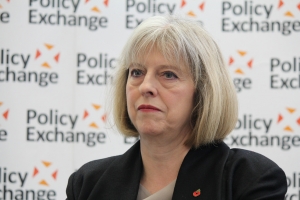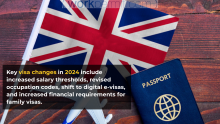Support migrant centric journalism today and donate

Sanwar Ali comment:
The Tier 1 Post-Study UK visa category and it’s predecessor the International Graduates Scheme was very popular in the past. If Brexit does eventually happen there will be a greater demand for overseas workers. Bringing back a new post study work visa scheme could help with skills shortages.
The return of the temporary UK post-study work visa has been widely debated. In early 2016, the UK government was adamant that the visa, scrapped in 2012, would not be re-introduced. Weeks later the government said ‘we’ve not completely closed the door on the post-study work visa.’
In early June 2019, Home Secretary Sajid Javid, called for post-study work restrictions imposed on international students to be lifted. Javid’s comments were recently backed by the House of Commons Foreign Affairs Committee as part of a report into improving UK-India relations.
The Committee said: “The UK government should reintroduce post-study work visas and let leading universities issue a limited number of visas direct to the best Indian students.”
Under current UK immigration rules, foreign students who graduate from UK universities are allowed to remain in Britain for up to six months to work. Prior to 2012, international students could stay in the UK for up to two years.
However, during her time as Home Secretary, outgoing Prime Minister Theresa May restricted post-study work to four months. In early 2019, the government accepted recommendations to extend this to six months for undergraduate and master’s students, while PhD students were permitted 12 months.
Not having Post-study work visa harms UK’s access to global talent
However, a number of stakeholders have argued that such small extensions are unlikely to “significantly raise interest” in working in the UK among international student graduates.
Mr Javid said: “It makes no sense to send some of the world’s brightest and most enterprising people straight home after their time here. I want to put skilled Britons in the same room as bright Europeans and those from other nations — in Manchester, Leeds and London, not Paris or Stockholm.”
Javid’s comments came as he competed for the Tory leadership position and UK Prime Minister role. However, Javid was knocked out of the running on 20 June. Mr Javid gave his backing to a cross-party move to liberalise the student visa regime, spearheaded by former universities minister, Jo Johnson.
Johnson had tabled an amendment to the government Immigration Bill in April 2019, urging MPs to re-introduce a two-year post-study work visa for international students.
The UK Council for International Student Affairs (UKCISA) welcomed Javid’s comments. Chief executive at UKCISA, Anne Marie Graham, said: “This a tremendous step forward for international students in the UK.”
“It will contribute to the successful delivery of the International Education Strategy. I’m very grateful to Jo Johnson and Paul Blomfield for their work to achieve cross-party support for this important amendment,” she added.
Foreign Affairs Committee UK visa report
According to the House of Commons Foreign Affairs Committee report, published on 24 June, the number of Indian students coming to UK universities halved from around 40,000 in 2010 to around 20,000 in 2014 – a period which included the abolition of post-study work visas in 2012.
The report - compiled by Johnson and Blomfield, titled Building Bridges: Reawakening UK-India Ties – presents strong evidence for a two-year post-study work visa. Many suggest that plans outlined in the report will be accepted by the government.
Tier 4 student visa
Additionally, the report suggests that the government should ‘review the possibility of involving universities in UK visa application processes,’ while also raising concerns that India is not included on a list of low risk nations, which gives preferential treatment to students from those countries under the Tier 4 student visa system.
The report argues that the low risk nations list includes countries such as Cambodia, China, Indonesia and Kazakhstan, but not India.
Johnson and Blomfield state: “As part of ‘urgently’ reviewing its policies towards Indian students, the government should reconsider its decision to exclude India from the low risk list.”
Correct a longstanding barrier for international students
Johnson and Blomfield’s report has received widespread support. Alistair Jarvis, chief executive of Universities UK, said: “Such a change in policy will correct a longstanding policy barrier to growth in international student numbers.”
“Growth in international enrolments in the UK has stagnated compared to our competitors, largely due to the uncompetitive visa offer. This must change if we are to remain a leading destination for overseas talent,” Jarvis added.
Director of the Higher Education Policy Institute, Nick Hillman, described discussions over the potential return of the post-study work visa as ‘fantastic news.’ He said: “The home secretary has seen, not least during his time as business secretary, how much harm the current rules are doing.”
According to research published in early 2019, the UK’s post-study work visa restrictions have cost the British treasury more than £150 million per year, totalling just over £1 billion since the Tier 1 post-study work visa was scrapped in 2012.
Workpermit.com can help with Tier 2 Visa Sponsor Licence and Tier 2 visa
If you need help with a Tier 2 Sponsorship Licence and Tier 2 visa or would like help with complying with your Tier 2 Sponsorship Licence obligations workpermit.com can help. Call 0344 991 9222 for further details.
Workpermit.com has been in the visa business for more than 30 years, helping thousands of people to study, work, invest and live in the UK. We represent clients under Section 84 of the 1999 Immigration Act, and we can advise and assist with your UK visa application..
..





















